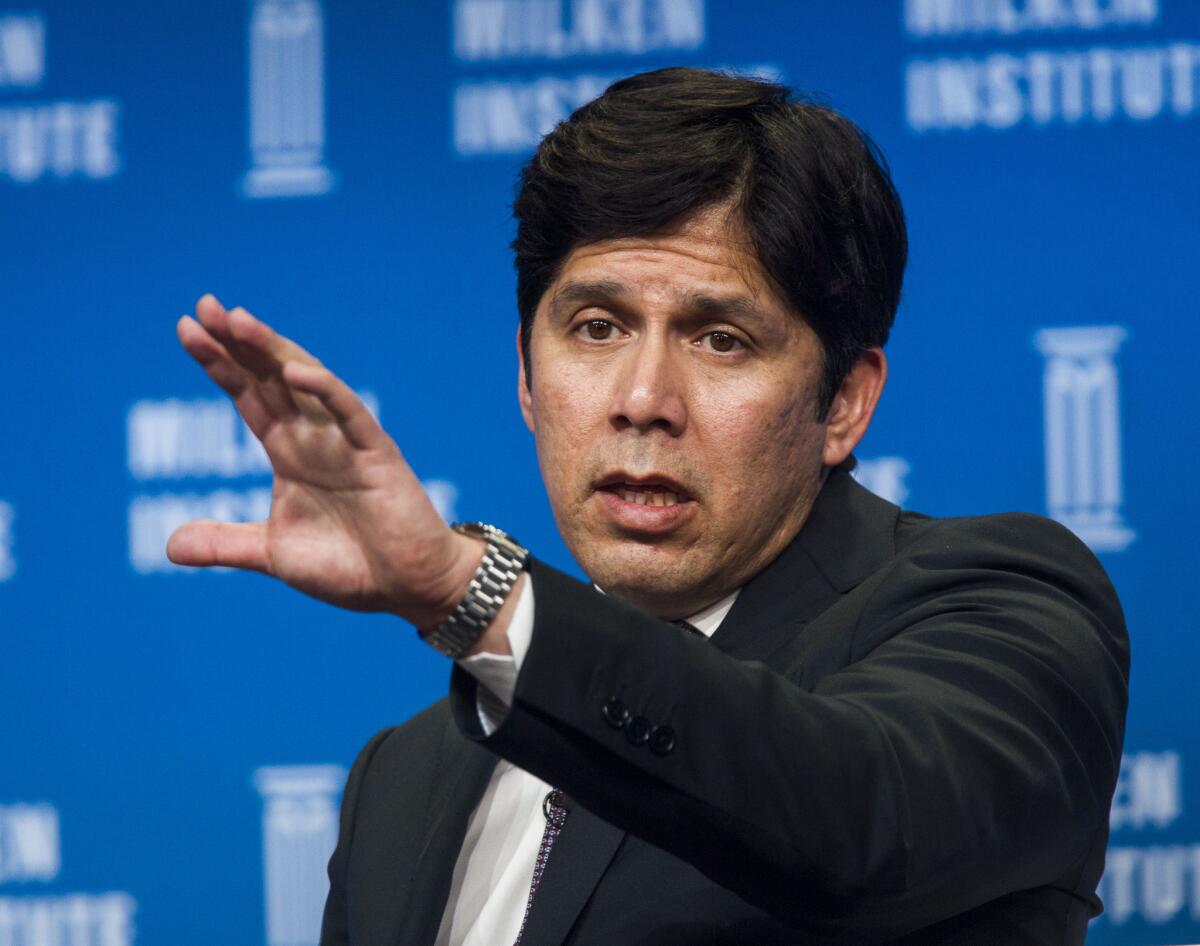State Senate advances sweeping climate change legislation

Climate change legislation pushed by Senate leader Kevin de Leon (D-Los Angeles) was approved by the state Senate on Wednesday.
Reporting from Sacramento — California state senators approved legislation Wednesday intended to help the state tackle climate change by setting new targets for generating renewable energy, reducing gasoline use and increasing energy efficiency in buildings.
The bill, which now goes to the Assembly, advances goals outlined by Gov. Jerry Brown earlier this year.
Although Republicans opposed the measure, which they said would raise costs and stifle business with new regulations, it passed easily in the Democratic-controlled chamber.
“These standards are reasonable, achievable and consistent,” said Senate leader Kevin de León (D-Los Angeles).
At a press conference after the vote, he described the legislation as the “most far reaching not just in California history, but in U.S. history.”
If approved by the Assembly and signed into law, the bill would require California to meet several objectives by 2030 -- generating 50% of electricity from renewable sources, doubling energy efficiencies in older buildings and reducing by half the amount of gasoline used on state roads.
Democrats tried to rebut concerns about the bill’s potential impact on the economy, saying it would lead to new investment in cleaner technologies.
“This bill is not a job killer,” said Sen. Mark Leno (D-San Francisco). “It is a major job creator.”
De León also said it would lead to cleaner air in areas like the Central Valley, which has some of the state’s most polluted areas.
Nonetheless, Republicans called the legislation an example of “coastal elitism,” and questioned whether the targets are achievable.
“We have a very lofty and noble goal,” said Senate Republican leader Bob Huff (R-San Dimas). But other than feeling good about it, what does it accomplish?”
Senators also approved two other climate bills on Wednesday morning. One of them, SB 32, codifies executive orders issued by Brown and his predecessor, Arnold Schwarzenegger. The bill would require the state to reduce its emissions to 40% below 1990 levels by 2030, and then to 80% below 1990 levels by 2050.
The other bill would require the state’s pension funds, the two largest public funds in the country, to divest from coal.
Follow @chrismegerian for more updates from Sacramento.
More to Read
Sign up for Essential California
The most important California stories and recommendations in your inbox every morning.
You may occasionally receive promotional content from the Los Angeles Times.











